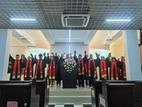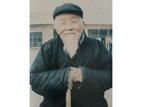Someone back in the USA asked me recently what it was like for Christianity here in China. I responded that it depends.
You see, China is a big place, and like any big place different areas have different views on things. I have read articles, both from local sources and foreign, about hostility toward churches or Christian groups in some parts of China. Other articles, both local and foreign, have shown local residents and governments helping Christians and churches.
So for this article I want to give a little bit both of what I experience and what is experienced by others around me, from both Christian and non-Christian perspectives.
For me, though, it’s never been an issue. I have been living here in the Northeast of China for almost four years, and I attend church every week. Sometimes I encounter someone who doesn’t know there is a church in this city, but their reaction to learning it is usually along the lines of “cool.” All of my co-workers know that I am a Christian, and a few of them even ask me questions about it. I have one co-worker who has asked me about different aspects of Christianity several times. For the rest, even the ones who actively hold a different belief, there is a respect of my faith.
But I am insulated somewhat from the full effects of things because I am a foreigner. Locals here almost expect me to be Christian because I’m “western.” Certainly not all foreigners are Christians, not even all “western” foreigners, but the idea of Christianity as a western religion is so strong in China that it is in some ways assumed for me, even before it is confirmed.
For local Chinese believers, however, the reactions can be very different. I will refer to a few of them here.
Yang has been a Christian for only a few years now. She accepted Christ after a colleague introduced her to Him. She felt depressed and knew that something in her life needed to change. That was only four years ago. Most of the people around her still don’t even know that she is a Christian.
She says that since China is officially an atheist country, many people here think that Christianity is stale, or simply find it hard to understand. Some of the people she meets are respectful of her beliefs, but others are more hostile. They feel that if a Christian is not kind and pitying, in other words perfect, then they are worse than people without any religion. Many of these believers only want some healing or blessing. They aren’t really pursuing a life with Christ, and non-Christians can see that so they view Christianity with some hostility.
Chen first encountered the Bible in university, where she studied it as literature, but she didn’t become a Christian until 2009. At that time she noticed that some of the people around her, including her boss and some people she met visiting from America, seemed different. They were calm, serene, and always ready to help. She wanted to be like them, so she gradually took a great interest in Christianity and church.
Most non-Christians she meets, when they find out she’s a believer, usually respond “really!” They think it’s interesting, from a purely academic standpoint. However, it is hard for her to share her faith with them since so many of them are Buddhist.
Fang is not religious at all, though she says that she respects people who are. She says most of them are wise, self-disciplined, and kind to others.
Unfortunately, she has met some religious people who are the opposite of what she thinks they should be, and that is off-putting. She says that while she wants to discover some religion for herself, she doesn’t have the time, energy, or experience, and she doesn’t want to be forced into a certain belief. She says that one friend used to always talk about religion, nothing else, and even though she was a kind person Fang didn’t want to be around her. To Fang, religions are just like anything else. They have positive sides and negative sides, depending on the individual.
Finally, Zhang is very curious about religion. Although he is not a Christian, he holds them, along with believers of other faiths, in high regard. He believes that people cannot be truly happy if they don’t have some sort of belief.
About the Author: Zach Hubl is an English teacher in the northeast of China. He grew up in Texas, and worked part time with a local church outreach ministry while he was studying history in college. He now lives in Anshan with his wife, Grace, and their two cats.











